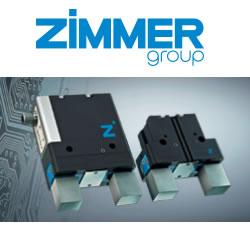CTA Foundation, IBM, Local Motors Collaborate on How to Create Accessible, Self-Driving Vehicles
Series of workshops and hackathons to help personalize the transportation experience
Las Vegas, NV, January 6, 2016 - Today the Consumer Technology Association (CTA)â„¢ Foundation announced an alliance with IBM and Local Motors to help create the world's most accessible, self-driving vehicle. The CTA Foundation, a public foundation with the mission to link seniors and people with disabilities with technologies to enhance their lives, announced the innovative partnership at CES® 2017 - the global stage for innovation, owned and produced by CTA - running Jan. 5-8 in Las Vegas, NV.
To begin identifying new innovations in accessible transportation, the CTA Foundation, IBM and Local Motors will launch a series of workshops and hackathons throughout 2017 to reach innovators of all ages, backgrounds and abilities. The Local Motors Olli - the first self-driving cognitive vehicle, already equipped with some of the world's most advanced vehicle technology - will serve as the foundation of the initiative. Built to include IBM Watson Internet of Things for automotive, the Olli improves the passenger experience and allows for natural interaction with the vehicle.
"Our goal is to explore new ways to improve access to transportation and personalize the experience to each person's unique abilities," said Ruoyi Zhou, director of accessibility research, IBM. "IBM has been committed to developing accessibility technology solutions to help people with disabilities for over 100 years. And by working with the CTA Foundation and Local Motors, we can further advance the role technology plays in transportation so everyone can stay more connected with friends, family and their community."
By calling on students and seasoned developers to apply the advanced cognitive computing capabilities of IBM Watson, Local Motors can create seamless interactions between the vehicle and passengers in an adaptive and immersive environment. Examples of how the Olli may be more accessible include:
• Understanding sign language and communicating back via text
• Adapting light and videos for users with photosensitive epilepsy
• Simplifying the language for those with cognitive disabilities
• Using Image recognition to describe what is outside of the vehicle for blind or visually impaired passengers
"Through the power of cognitive computing, the Internet of Things (IoT) and accessibility technology, this initiative will significantly improve the lives of persons with disabilities and the growing aging population," said Stephen Ewell, executive director of the CTA Foundation. "CTA's member companies are already using connected mobile devices, sensors and cognitive systems to change our lives for the better - whether that means an improvement to our everyday lives or a game-changing disruptive innovation. And we invite others in the tech industry to join us in helping ensure these critical accessibility and transportation solutions come to life."
This effort represents an extension of IBM's recent collaboration with the CTA Foundation which produced the Outthink Aging study. The research revealed that meeting the needs of a growing aging population will require new technologies, partnerships, ideas and business models. Today, one billion people experience some form of disability - and by 2050, people aged 60 and older will account for 22 percent of the global population. But better access to transportation helps improve independence and the quality of life for seniors and people who suffer from cognitive, vision, memory or physical challenges.
###
About CES:
CES is the world's gathering place for all who thrive on the business of consumer technology. It has served as the proving ground for innovators and breakthrough technologies for almost 50 years-the global stage where next-generation innovations are introduced to the marketplace. As the largest hands-on event of its kind, CES features all aspects of the industry. And because it is owned and produced by the Consumer Technology Association (CTA)â„¢ - formerly the Consumer Electronics Association (CEA)®- the technology trade association representing the $287 billion U.S. consumer technology industry, it attracts the world's business leaders and pioneering thinkers to a forum where the industry's most relevant issues are addressed. Check out CES video highlights. Follow CES online at www.CESweb.org and on social.
About Consumer Technology Association:
Consumer Technology Association (CTA)â„¢, is the trade association representing the $292 billion U.S. consumer technology industry, which supports more than 15 million U.S. jobs. More than 2,200 companies - 80 percent are small businesses and startups; others are among the world's best known brands - enjoy the benefits of CTA membership including policy advocacy, market research, technical education, industry promotion, standards development and the fostering of business and strategic relationships. The Consumer Technology Association also owns and produces CES® - the world's gathering place for all who thrive on the business of consumer technologies. Profits from CES are reinvested into CTA's industry services.
About CTA Foundation:
The Consumer Technology Association (CTA) Foundation is a public, national foundation affiliated with the Consumer Technology Association. It was established with the mission to link seniors and people with disabilities with technologies to enhance their lives. The Foundation is focused on strategic support of programs to impact these communities and has launched its first series of grants in 2012. It also serves to facilitate dialog between industry, consumers, government, advocacy groups and other key stakeholders around important issues. For more information on the CTA Foundation please visit CTAFoundation.tech.
Featured Product

